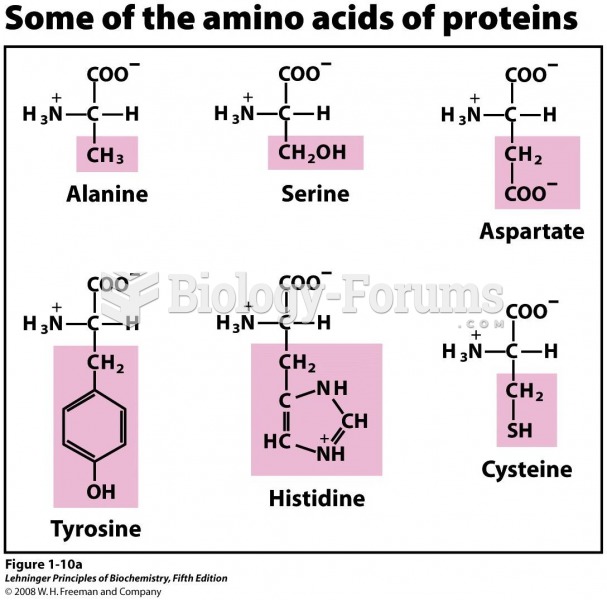|
|
|
The first documented use of surgical anesthesia in the United States was in Connecticut in 1844.
People who have myopia, or nearsightedness, are not able to see objects at a distance but only up close. It occurs when the cornea is either curved too steeply, the eye is too long, or both. This condition is progressive and worsens with time. More than 100 million people in the United States are nearsighted, but only 20% of those are born with the condition. Diet, eye exercise, drug therapy, and corrective lenses can all help manage nearsightedness.
According to the FDA, adverse drug events harmed or killed approximately 1,200,000 people in the United States in the year 2015.
On average, the stomach produces 2 L of hydrochloric acid per day.
The most common childhood diseases include croup, chickenpox, ear infections, flu, pneumonia, ringworm, respiratory syncytial virus, scabies, head lice, and asthma.







